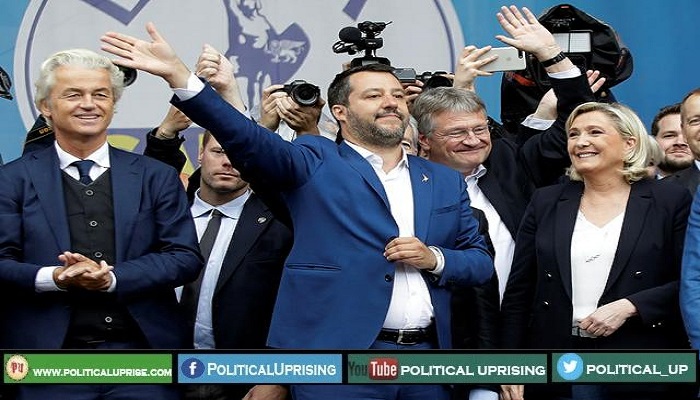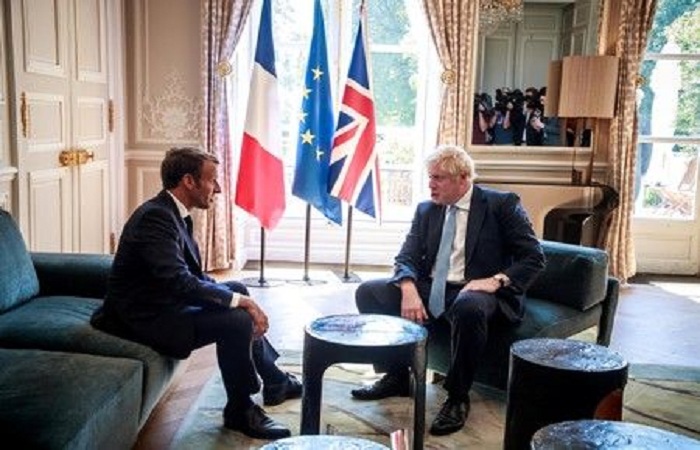EU officials softened criticism on Chinese disinformation surrounding the coronavirus pandemic in response to pressure from China, according to reports.
Both The New York Times and South China Morning Post claimed to have obtained original versions of the report, which each publication cited as more damning than the document published on Friday.
The document was supposedly altered following pressure from China over possible “repercussions” against its trade partners.
The European External Action Service (EEAS) subsequently denied editing any portion of the report in response to political pressure, expressing disappointment in the report by the Times.
The Daily Telegraph reported that China originally attempted to block the report before the EU instead “rearranged or removed” some of the criticism aimed at the Chinese government.
The published report makes note of several efforts by China to spread disinformation, particularly a “coordinated push by official Chinese sources to deflect any blame for the outbreak of the pandemic.”
The original document included language that spoke of “a global disinformation campaign to deflect blame for the outbreak of the pandemic and improve its international image.”
European Union,Britain fail to bridge gaps in future relationship talks
The new version also omitted references to China’s criticism of France and a pro-Chinese bot network in Serbia.
According to the South China Morning Post, the section was removed after Beijing warned EU diplomats based in China that there would be “repercussions” if the document was published. The Post reported that diplomats worried that the report would “strain” relations and make it “difficult to get medical supplies” from China.
The Times reported that Esther Osorio, a communications adviser to EU Minister for Foreign Affairs Josep Borrell, ordered the delay of publication.
Osorio supposedly asked analysts to revise the document to focus less on China and Russia to avoid accusations of bias.Instead, she asked that the document differentiate between pushing disinformation and aggressively pushing a narrative.
At least one analyst formally objected to the delays and edits,writing to her bosses that the European Union was “self-censoring to appease the Chinese Communist Party.”
The Times spoke with Peter Stano, the EU spokesman, who said no revisions to the document had been ordered in response to diplomatic pressure, nor had the document been delayed.
“The publications of the EEAS are categorically independent.We have never bowed to any alleged external political pressure. This includes also our latest snapshot overview on disinfo trends published last Friday,” Stano said.
UK moves closer to leaving European Union
“The public EEAS special report makes clear reference to the continued use of conspiracy narratives and disinformation from government and State-backed sources, including Russia and China. This is a good indicator for the fact that the EU did not back down to any outside pressure.”
“The New York Times article makes ungrounded, inaccurate allegations and contains factually incorrect conclusions about the EEAS’ report.
They have also used our replies and explanations in a disproportionate and selective way. We have written a letter to the Editor of the New York Times to express our disappointment with the article, and have invited them to consult the www.euvsdisinfo.eu website in order to fully understand the extent of the EEAS leading work to collect, analyse and expose disinformation about the coronavirus.”
The EEAS compiled the report from documents, emails and interviews to determine the extent to which disinformation about the pandemic enabled its spread. Stano highlighted that the current report does not “refrain from naming actors in disinformation efforts.”
“The objective of this report is to provide a snapshot overview of the current trends and insights into disinformation activities related to COVID-19/Coronavirus,” the report reads in its preface. “It does not provide a comprehensive or complete overview and focusses primarily on the external dimension, in line with the European External Action Service (eeas) mandate.”
Pact signed between pro-European union parties
In a report released on April 1, the disinformation team said China’s “state media and government officials promote not proven theories about the origin of Covid-19”, adding that Chinese coverage highlighted “displays of gratitude by some European leaders in response to Chinese aid.”
The EEAS was originally established to monitor possible disinformation from Russia, but last year expanded its mission to include China.



